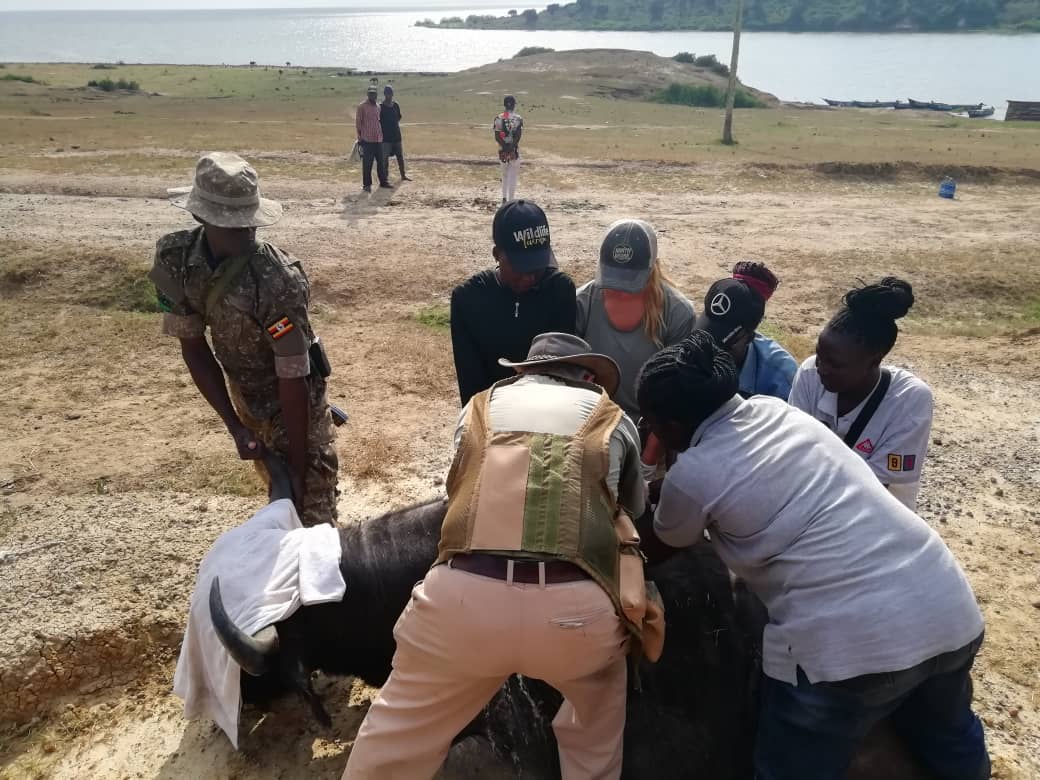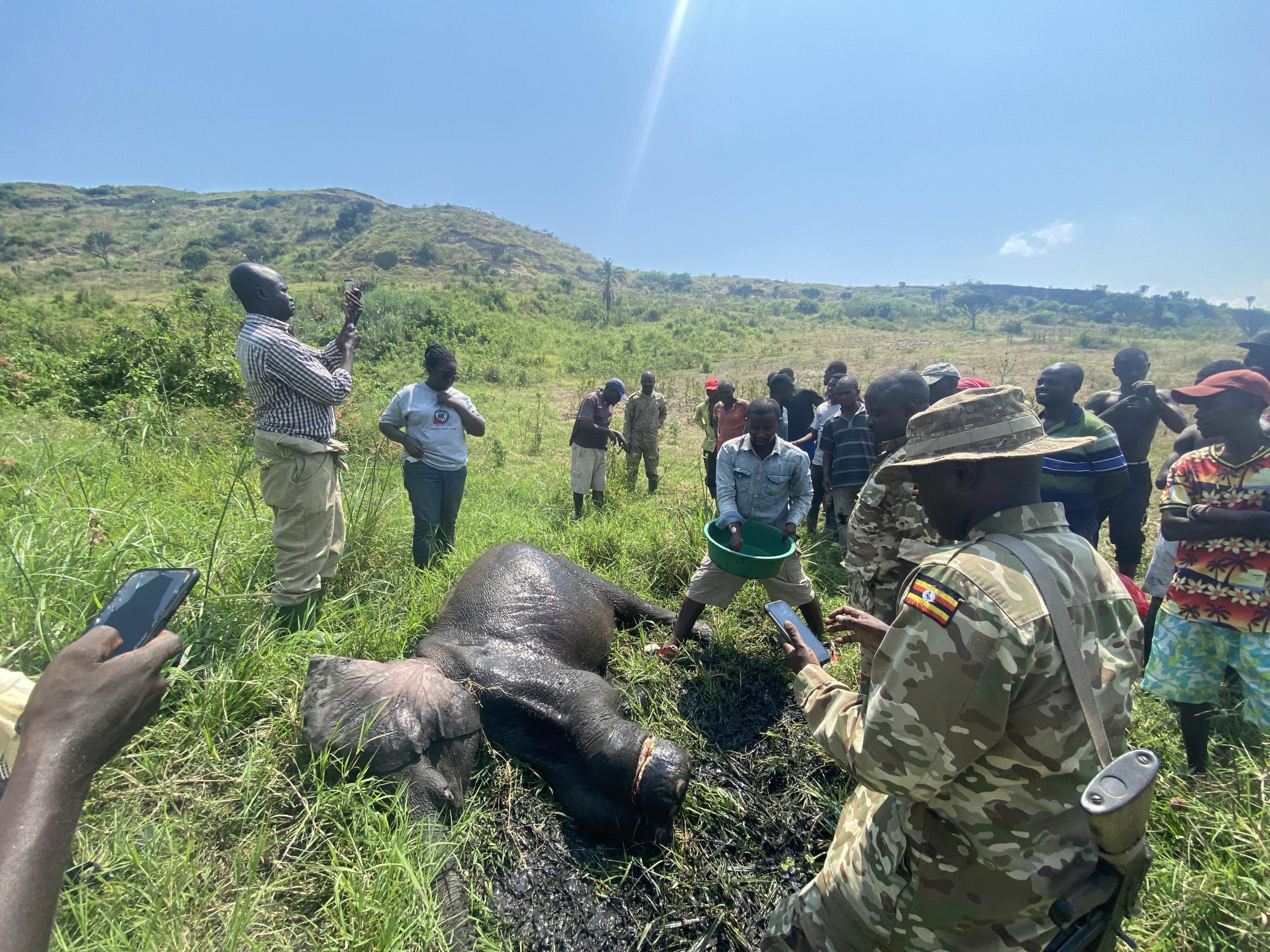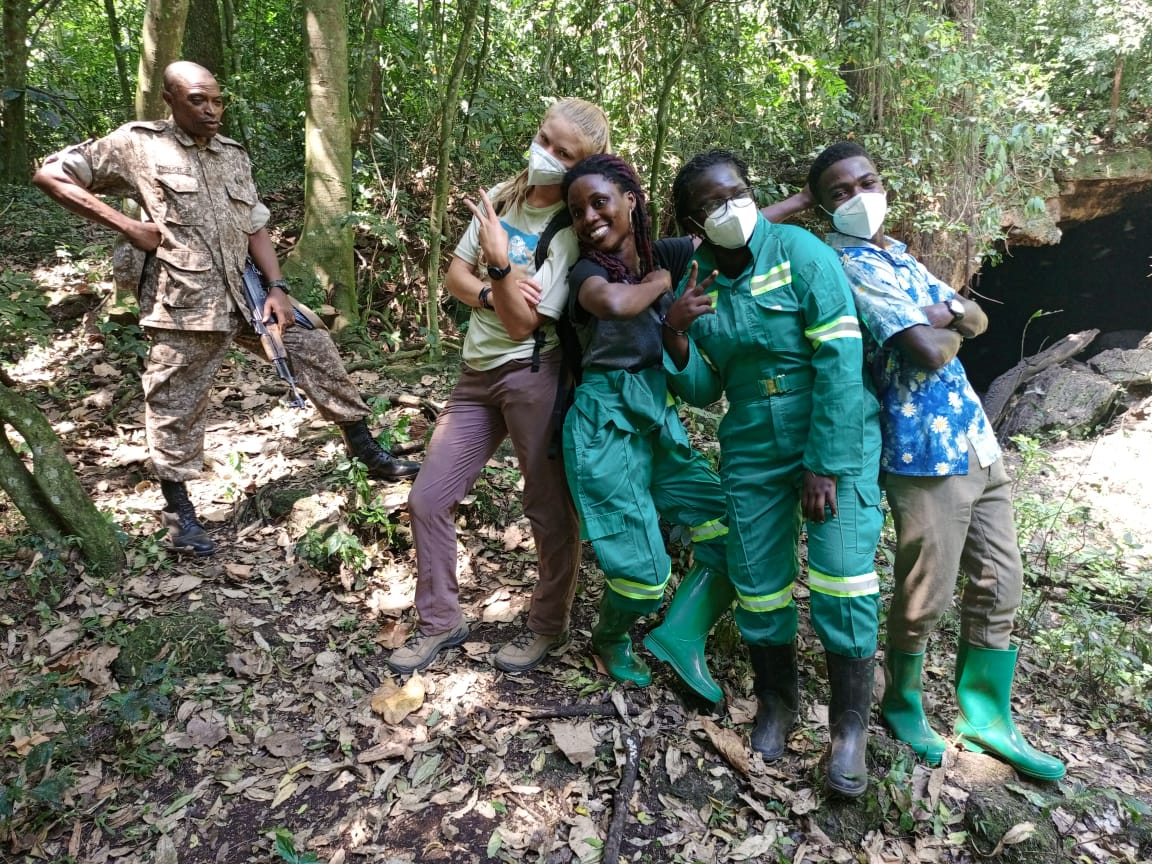Jean Howell
This past summer I had the privilege of traveling to Uganda for five weeks to work with wildlife veterinarians and experience the country’s natural beauty and culture.
The externship took place in Queen Elizabeth National Park, located on the western edge of Uganda, which is home to numerous incredible wildlife species as well as 11 fishing villages. Humans and wildlife are cohabitating within the park boundaries, thus creating unique challenges in terms of human-wildlife conflict and zoonotic disease spread. I was fortunate enough to volunteer with the Uganda Wildlife Authority, a government agency responsible for the management and conservation of Uganda’s wildlife and national parks. I got to work under their veterinary staff, who run clinical field interventions to handle sick or injured wildlife, disease surveillance in their One Health laboratory, and wildlife forensics examinations. Many of my days were spent in the field responding to reports of injured elephants, buffalo, hippos, warthogs, and antelope. One of the biggest highlights was being able to participate in multiple wire snare removals and wound treatments of several elephants. I learned so much about elephant tracking, behavior, darting, immobilization, and the many nuances and complexities of wildlife conservation. Other field interventions I was able to assist with were treating a buffalo who had suffered from a human-inflicted snare wound, sample collection from buffalo for routine disease surveillance, and a post-mortem evaluation and tusk removal from a deceased elephant. When we weren’t in the field, I assisted staff in the laboratory running tests on samples brought from wildlife in the field or domestic species from nearby villages. Diseases tested for regularly in the lab include Anthrax, Brucella, Marburg virus, Rift Valley Fever, and Crimean Congo Hemorrhagic Fever.


In my free time, I spent time with my new friends, creating lifetime bonds, and experiencing Ugandan culture. Every day there were warthogs right outside my front door, and at night I could hear lions, hippos, and hyenas from my room. I stayed in a simple, comfortable room within walking distance from the laboratory in a small community within the national park. I felt incredibly welcomed by the organization and the locals and never felt unsafe. Other activities I did during my days off included boat cruises, game drives, chimpanzee tracking, and visiting a nearby bat cave.
I cannot express enough how much this experience has impacted me; both in informing my veterinary education and future career goals, as well as my growth as a person. It is truly impossible to describe what it was like to enter a world so different from the one I am familiar with; I am so grateful to have had the opportunity to expand my cultural awareness.
Things that would have made my experience even better yet would have been more organization surrounding the day-to-day activities and more opportunities for active participation.
Thank you so much to all the staff at Uganda Wildlife Authority for the wonderful mentorship and hospitality. A massive thank you also to Dr. Van Rompay for connecting me to this organization and for being my mentor. And thank you so much to the Global Programs for making this trip possible and for the constant support throughout this process.

